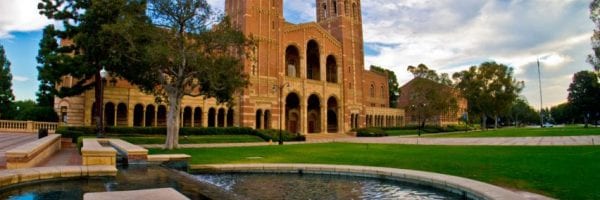Work Friends May Not Get Better Benefits, According to UCLA – LA News

As we fully unroll into the new year, we take a look at some of the biggest recent news coming out of Los Angeles.
UCLA Anderson Professor on Work Friendships’ Effects – UCLA Anderson News
Research by Eugene Caruso, Associate Professor of Management and Organizations at UCLA Anderson School of Management, recently received note in the online forum Quartz at Work.
Caruso, along with colleagues from the University of Chicago and Hebrew University, studied the consequences of friendships between managers and employees. Through a series of experiments, the team discovered that when a boss makes a decision, such as who gets a bonus, they are actually less likely to give it to a friend in order to appear impartial. This tendency remained much of the time even when the friend was the more highly deserving candidate for the bonus.
Notably, when managers had to make a decision on a bonus that would remain private, they were more likely to choose the deserving friend. Participants in the research were told that the friend had performed only slightly better than the other bonus candidate, and that the choices were to give the friend the merit-based bonus or to flip a coin to decide between the two. In the public decision scenario, the deserving friend received the bonus 27 percent of the time. When the deserving worker was the non-friend, participants granted the bonus over 60 percent of the time.
The research overall revealed that participants were more likely to approve of the merit-based bonuses. The study can serve as an important model for HR managers on the unintended outcomes of workplace relationships.
Read more about the team’s research here.
Mihaylo Professors on China Trade War and the SoCal Economy – Mihaylo News
Associate Professor of Economics Pedro Amaral and Lecturer Aaron Popp of Cal State Fullerton’s Mihaylo College of Business have examined the impact of the U.S. and China Trade War upon one of the most influential economies, that of Southern California. The region serves as a hub of trade with East Asia.

Cal State Fullerton professor Pedro Amaral
In the panel discussion last month sponsored by the CSUF Economic Association, Amaral and Popp presented their research.
“About 46 percent of total Chinese imports are being tariffed, but L.A. is serving a smaller percentage of those products [that are being tariffed]–41 percent. But any later round of tariffs will have a harder impact on the local economy,” Popp notes.
Reflecting upon the long history of the tension between the two world powers and the nature of China’s transition, Amaral says, “China has had an incomplete transition into capitalism, which the West still ponders about China …We used to think that once they got into free trade, they would become a freer society upon the embrace of the market economy. But they haven’t, which is something my liberal mind struggles with.”
You can read more on Popp and Amaral’s discussion here.
Graziadio Strategy Professor on Corporate Boards and Entrepreneurship – Graziadio News
Dr. Mark Tribbit, Pepperdine Graziadio Assistant Professor of Strategy, was honored recently for his scholarly research with the 2018 Emerald Literati Award. For the past 25 years, the award has acknowledged valuable contributions to scholarly research.
Tribbit’s research, “An Agency Perspective on the Board of Directors and Corporate Entrepreneurship,” examined the effect of takeovers upon internal entrepreneurship. The outcome of the research will help corporate boards to foster entrepreneurial efforts by staff.

Dr. Mark Tribbit, Pepperdine Graziadio Assistant Professor of Strategy / Photo via newsroom.pepperdine.edu
In addition to his professorship, Tribbit serves as the Academic Director of Graziadio’s full-time MBA program. Experienced in management for corporate, retail banking, and wholesale, Dr. Tribbit received his MBA from Villanova University, and his Ph.D. in strategic management from Drexel University.
You can read more about Dr. Tribbit’s award and his full article here.
Booth Research Analyzes Renewable Energy

New research via University of Chicago Booth School of Business Professor John R. Birge and German researchers, Ingmar Ritzenhofen and Professor Stefan Spinler of the WHU-Otto Beisheim School of Management, have comprehensively analyzed the various schemes to support renewable energy generation and find ways to reduce carbon emissions as well as end fossil fuel dependence. Continue reading…
